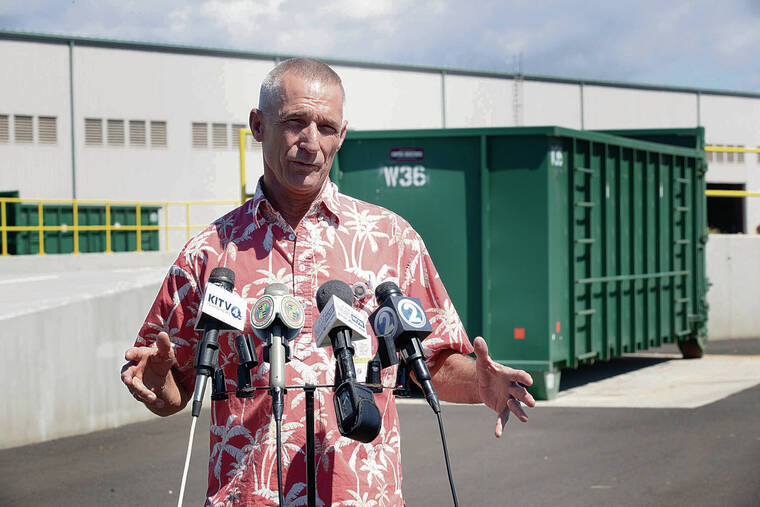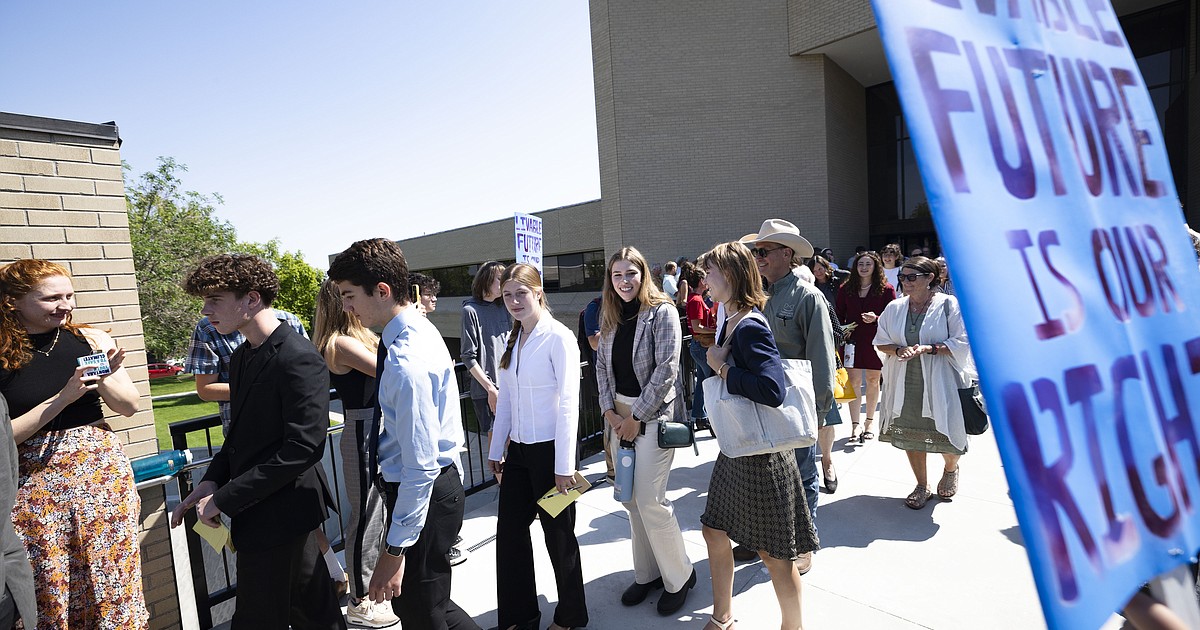By Ian Bauer
Copyright staradvertiser

The Honolulu Department of Environmental Services has sold nearly $217 million of wastewater system revenue bonds to fund multimillion-dollar upgrades to its facilities, officials announced Tuesday.
ENV said it received nearly $1.4 billion in retail and institutional orders for these bonds, including millions of dollars in orders from Hawaii-based individuals and banks. The average interest rate on the bonds is 4.79%.
The city asserts bond proceeds will finance the costs of certain improvements, including design and construction of projects that rehabilitate Oahu’s existing wastewater system, expand system capacity and upgrade treatment processes.
In a letter sent to the Hono-lulu City Council on Tuesday , city Department of Budget and Fiscal Serv-ices Director Andy Kawano noted that the Council’s Aug. 6 adoption of Resolution 193 authorized the sale of up to $230 million of senior series 2025B bonds, or so-called green bonds.
“The city has sold $216,940,000 aggregate principal amount of the bonds,” he wrote. “The net proceeds from the sale of the bonds, after payment of costs of issuance … will be used to fund the costs of certain additions and improvements to the wastewater system authorized by the capital projects budget of the city and county.”
Kawano also noted the passage of a 1998 Council resolution provides for the issuance of senior lien revenue bonds payable from the revenues of the city’s wastewater system.
This week, ENV Director Roger Babcock told the Hono-lulu Star-Advertiser that revenue bonds are sold by his department every year to fund the capital projects for the island’s wastewater system.
“The debt issued by ENV is only for the wastewater program and is separate from the general obligation bonds that the city sells for the other parts of the capital program,” he said.
In September 2024, ENV sold $305 million in new sewer bonds and also refinanced an additional
$325 million in bonds. A year earlier, ENV sold $200 million in new sewer bonds, he said.
“The bonds are tax-free municipal bonds that have variable terms, but most are 30-year payouts,” he said. “Thirty-year revenue bonds are important to the wastewater program as the primary method to finance the long-lived sewer infrastructure. Debt financing is necessary to avoid much greater sewer fee increases that would be necessary if all capital projects were paid with cash alone.”
Babcock noted the
current total outstanding bond debt for the sewer fund is $2.73 billion.
Meanwhile, ENV has a
total of 107 capital projects underway, including 23 projects currently in construction, he said.
“The other 84 are in either planning or design phases,” he added. “After a project is awarded to a contractor, it generally takes two to six years to complete construction, depending on the size and complexity of the
Contractors send invoices to ENV for progress payments every month, he said. The department uses a combination of cash — sewer fee revenues — and sewer bond revenues to pay the
“Currently, bonds are used to pay about 80% of the progress payments,” Babcock said. “The total awarded contracts for the 23 projects currently in construction is over $1.8 billion.”
He noted bond revenues are used to make payments for all of the active construction projects, which include projects involving refurbishment and upgrades and new facilities including sewers, pump stations, and wastewater treatment plants.
At the same time the city says capital projects are required, Honolulu’s sewer fees are scheduled to increase for ratepayers in 2026.
City officials say sewer fee hikes are necessary to help support the ENV’s ongoing wastewater operations and maintenance efforts, as well as a $10.1 billion capital improvement program for
Oahu’s wastewater collection and treatment system that’s planned through 2040.
And they assert the work includes a $2.5 billion upgrade to the Sand Island Wastewater Treatment Plant as required under a 2010 federal consent decree.
On June 4, the Council adopted its draft of Bill 60, which shaved the city’s decadelong span for increased rates down to about six years.
That plan would start
Jan. 1, 2026, and run through 2031.
As approved, Bill 60’s sewer fee increases for a household that uses about 6,000 gallons of water per month — deemed 50% of all single-family households in Honolulu — equates to a 6% increase in sewer fees in fiscal year 2026, 7.5% in fiscal year 2027, 8.5% in fiscal year 2028, followed by 9% over the remaining four fiscal years.
Starting in fiscal year 2033, sewer rates would
increase 3% annually.
As adopted, a household that uses 6,000 gallons a month is currently charged $99.77 on average. By year 2031, that average bill would rise to $160.85, a more than 61% increase, ENV data
Babcock said the sewer fee increases generate cash that’s used for operation and maintenance, including wages and current expenses, debt service, and a portion of CIP invoices.
“Fee increases are necessary for increasing O&M costs and increasing needs for construction projects to continue to maintain and upgrade the wastewater system to meet regulatory requirements, protect public health and the environment, and prepare for climate change,” he said. “If ENV does not keep up with the required O&M and the required CIP is not completed, there can be major system failures, sewage spills, and costly enforcement actions.”
He added “proactive maintenance and construction are less costly than
reactionary ones and
thus save money for the ratepayers.”



